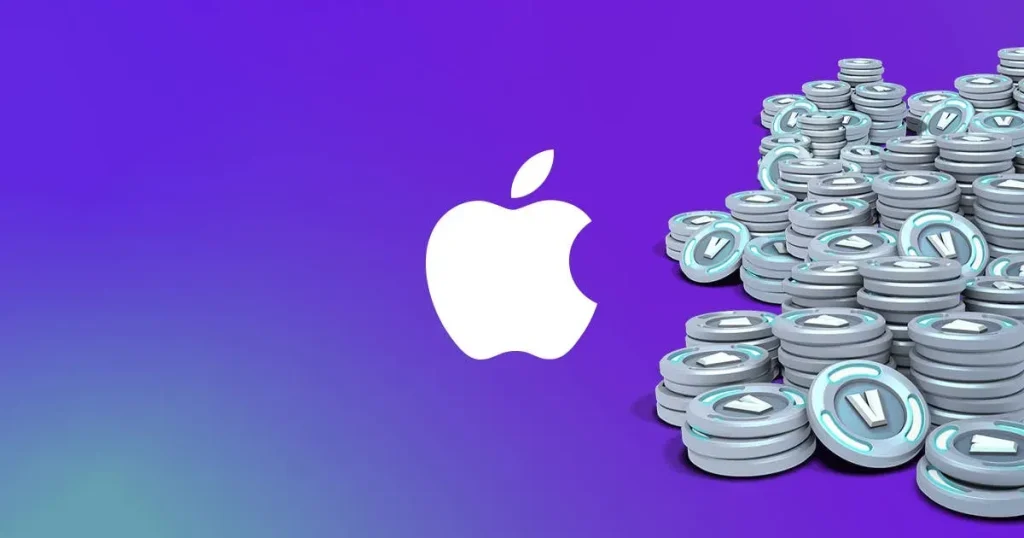The recent Apple Epic ruling marks a turning point in the ongoing saga between Epic Games and Apple, highlighting crucial changes that could reshape the mobile app regulations landscape. This landmark decision, rather than being a mere footnote in a lengthy legal conflict, carries significant implications for app developers and Apple’s App Store practices. Central to this ruling is the judge’s condemnation of Apple’s anti-steering policy, which has long restricted developers from guiding users to outside purchasing options. As the case unfolds, we see not just a judicial verdict, but a potential shift in the app distribution landscape that could enhance competition and diversity in mobile platforms. With every maneuver scrutinized, this ruling demands attention as it could pave the way for meaningful Apple App Store changes that prioritize developers’ rights and user choice in the marketplace.
The ruling concerning Apple’s conduct in its dealings with Epic Games sheds light on broader issues relevant to digital commerce and platform governance. Often referred to as the Epic Games lawsuit, this case exemplifies the tensions inherent in mobile ecosystems, particularly regarding app distribution channels and the policies that govern them. The legal decision addresses key concerns about anti-competitive practices, urging a reevaluation of the norms surrounding the app marketplace. As developers face increasingly stringent mobile app regulations, the implications of this ruling extend beyond mere judicial outcomes, suggesting a transformative effect on how app creators can interact with their audiences. In an era where digital innovation thrives, this decision could signify a much-anticipated pivot towards more favorable conditions for app distribution.
The Significance of the Apple Epic Ruling
The Apple Epic ruling represents a pivotal shift in how app distribution and payments are managed on mobile platforms. For years, Apple’s strict control over the App Store allowed it to dictate the terms of service, including imposing a hefty 30% fee on in-app purchases and prohibiting developers from directing users to alternative payment methods. The recent judicial decision explicitly targets these anti-steering practices, compelling Apple to comply with more transparent and fair regulations. This ruling not only affects Epic Games but set a precedent that could empower other mobile app developers seeking to challenge Apple’s dominating grip.
Moreover, the implications of the ruling extend beyond Epic and Apple alone; it signals to the entire tech industry that legal recourse is possible against seemingly monolithic companies. If enforced, this decision could dismantle the existing business models that many developers have struggled against. The requirement for Apple to eliminate fees associated with off-platform transactions restructures the economic dynamics of the app development landscape, fostering a more competitive environment in mobile app regulations and product innovation.
Changes in the App Store Regulations
Following the Apple Epic ruling, significant shifts are anticipated in the operational framework of the App Store. As Apple is mandated to modify its anti-steering policies, developers will enjoy newfound freedom in directing users away from the App Store for purchases, potentially leading to reduced operational costs. This allows developers to engage directly with customers through alternative platforms, promoting a more diverse app ecosystem that aligns with increasing demands for consumer choice in transactions.
Additionally, the swift changes in the App Store regulations will likely prompt other app stores to reconsider their own policies, leading to a ripple effect across the mobile app distribution landscape. Consumers may benefit from increased competition among payment systems, driving down costs for both developers and users, and ultimately resulting in a more equitable marketplace. As these regulations evolve, developers should prepare for changes that could redefine their businesses fundamentally.
Implications for Mobile App Developers
In light of the new ruling, mobile app developers may experience a dramatic transformation in how they interact with consumers and manage transactions. With Apple’s fees and restrictions on steering reduced or eliminated, developers could capitalize on this opportunity to lower prices and improve services. This potentially introduces a new level of competition within the app industry, wherein developers can utilize innovative marketing strategies to attract users away from Apple’s ecosystem.
Furthermore, mobile app developers should consider this ruling as a significant motivator to diversify their distribution strategies. By promoting off-platform purchases, developers can build more robust relationships with their customer base. Those who adapt early to these regulatory changes may find themselves at a distinct advantage in their revenue growth and market positioning.
The Future of Payment Processing on Apps
One of the most substantial outcomes of the Apple Epic ruling lies in the prospective disruption of payment processing systems within apps. As the ruling compels Apple to drop its off-platform transaction fees, developers are given increased freedom to choose alternative payment processors. This shift could foster a competitive environment that encourages innovation in payment solutions, potentially leading to enhanced user experiences and lower costs for consumers.
Markedly, this ruling has the potential to redefine the business relationships between app developers and payment processors, as they may explore more advantageous fee structures. This newfound freedom emphasizes the importance of maintaining adaptability in regulations, which could ultimately elevate the app economy as developers strategize to offer value without the constraints of previous monopolistic practices.
Apple’s Navigational Challenges Post-Ruling
In the aftermath of the Apple Epic ruling, it’s crucial to understand how Apple will navigate the changing regulatory landscape. Faced with the court’s demands for compliance, Apple may encounter challenges in maintaining its previous revenue model while adapting to a new, scrutinized operating framework. The company’s historical resistance to change has been tested, and now, it faces the formidable task of restructuring its strategy while managing stakeholder expectations.
Moreover, the ruling’s implications on Apple’s brand image can’t be overlooked. As public scrutiny increases, Apple must also rebuild trust with both developers and consumers. The fallout from the ruling indicates that transparent engagement and accountability will be critical in restoring its reputation as a fair market player. This shift might prompt Apple to rethink its long-term strategies, leading to more inclusive practices that consider the interests of developers and users alike.
The Ripple Effect of the Ruling on Competition
The Apple Epic ruling is likely to trigger a ripple effect among other tech companies, particularly those with similar app distribution models. As the court emphasizes greater oversight, other corporations may feel pressure to reassess their policies to prevent similar legal challenges. With the spotlight now on Apple’s anti-competitive practices, industry peers may find it essential to adopt a more developer-friendly approach and implement reforms to avoid negative public perception.
This anticipated shift in the competitive landscape offers developers a rare opportunity: to push for fair treatment across other platforms. The ruling calls companies to be more proactive in fostering healthy competition within the application ecosystem, paving the way for innovative solutions and ultimately benefiting consumers and developers alike.
Apple’s Compliance Challenges Ahead
As Apple seeks to comply with the court’s directive for new payment provisions, the company will inevitably face significant challenges in implementation. The requirement to adhere to these strict guidelines may necessitate a complete overhaul of internal processes, particularly those pertaining to how transactions are managed on the App Store. Adapting to these changes will require swift action, all while maintaining a seamless experience for users to avoid losing market share.
Additionally, Apple must navigate the legal ramifications of the ruling closely, recognizing that non-compliance could lead to further sanctions and penalties. The stakes are high for Apple as this ruling could alter its longstanding operational model, driving the need for a collaborative approach with developers to develop mutually beneficial frameworks that adhere to the new rules.
Consumer Expectations in a Changing Landscape
In the context of the new changes triggered by the Apple Epic ruling, consumer expectations will inevitably evolve. With potential reductions in prices and fees resulting from increased competition, consumers may begin to demand more value and transparency from app developers and Apple alike. This evolution in consumer behavior will likely prompt developers to focus on better user experiences, leading to higher quality apps and services.
Furthermore, as the landscape shifts towards off-platform purchasing options, consumers must become more informed about their choices and the benefits of different payment processing solutions. In this newly competitive environment, consumers may advocate for better payment terms and clearer pricing structures, escalating the need for developers and app stores to respond effectively and proactively to fulfill these emerging expectations.
Strategic Moves for Developers Post-Ruling
With the recent Apple Epic ruling steering significant changes in the industry, developers must evaluate their strategies to thrive in this new landscape. Understanding the implications on the App Store’s compliance requirements presents an opportunity for developers to design their business models more effectively. This adaptability can ensure they maximize the benefits offered by the new regulations while minimizing operational interruptions.
Moreover, developers should consider strategic partnerships or initiatives that align with consumer expectations for transparency. Emphasizing direct communication with users about payment processes and options could foster loyalty and trust, setting developers apart in an increasingly competitive market. By being proactive about their approaches, developers can leverage this ruling to solidify their standing in the evolving app ecosystem.
Frequently Asked Questions
What is the significance of the Apple Epic ruling regarding mobile app regulations?
The Apple Epic ruling is significant because it addresses anti-steering policies, requiring Apple to allow developers to direct users to alternative purchasing methods outside the App Store without imposing fees. This ruling marks a shift in mobile app regulations, potentially increasing competition and reducing costs for developers.
How does the Apple Epic ruling impact the App Store changes?
The Apple Epic ruling mandates that Apple cannot enforce its anti-steering policy, allowing developers to inform users about alternative payment options. This change could lead to significant modifications in how the App Store operates and how developers interact with their customers, possibly affecting Apple’s revenue model.
Will the Apple Epic ruling lead to changes in app distribution landscape?
Yes, the Apple Epic ruling is poised to change the app distribution landscape by loosening Apple’s control over how developers sell their products. Developers can now redirect users to third-party payment methods, fostering a more competitive environment and challenging Apple’s longstanding commission structure.
What are the implications of the anti-steering policy in the Apple Epic ruling?
The anti-steering policy implications in the Apple Epic ruling mean that Apple must allow developers to promote and link to third-party payment methods. This could lead to a reduction in Apple’s transaction fees, affecting developers’ costs and altering the competitive dynamics within the app marketplace.
How does the Apple Epic ruling affect the future of the Epic Games lawsuit?
While the Apple Epic ruling is a victory for Epic Games on the narrow issue of anti-steering, it does not automatically grant them access to the App Store. The ruling may shift negotiation power towards Epic in the ongoing lawsuit, potentially leading to a resolution that allows Fortnite back on the platform.
What are potential outcomes from the Apple Epic ruling for developers?
Developers could benefit from the Apple Epic ruling through reduced fees associated with off-platform transactions, increased flexibility in payment systems, and an overall more competitive app economy. This may open doors for innovation and profit-sharing models previously hindered by Apple’s stringent policies.
Will Apple be required to allow third-party app stores due to the Epic ruling?
No, the Apple Epic ruling specifically addresses anti-steering practices and does not require Apple to permit third-party app stores. However, the ruling does indicate that Apple will face stricter oversight moving forward, which may impact future regulations on app distribution.
How could this Apple Epic ruling reshape the app marketplace?
The Apple Epic ruling could reshape the app marketplace by diminishing Apple’s monopolistic control over payment processing, encouraging more competition among payment providers, and possibly leading to lower transaction fees for developers. This ruling is expected to drive significant changes in how apps are monetized in the future.
What does the Apple Epic ruling mean for consumer choice in app purchases?
The Apple Epic ruling enhances consumer choice in app purchases by allowing developers to inform users about alternative payment methods beyond the App Store. This change aims to give consumers more options for purchasing in-app content and potentially lower prices.
Why is the Apple Epic ruling considered a pivotal moment for the app ecosystem?
The Apple Epic ruling is viewed as pivotal due to its potential to dismantle long-standing anti-competitive practices within the App Store. By challenging Apple’s fees and control, it opens the door for a more equitable app ecosystem, benefiting developers and consumers alike.
| Key Point | Details |
|---|---|
| Epic’s Legal Battle | Epic Games initially won a narrow victory on anti-steering provisions in its legal battle against Apple. |
| Apple’s Compliance Issues | Judge Yvonne Gonzalez Rogers criticized Apple for non-compliance with earlier rulings, indicating possible criminal repercussions for a company executive. |
| New Ruling Impact | The court mandated stricter guidelines, limiting Apple’s flexibility in interpreting and applying rules. |
| Anti-Steering Provisions | Apple is now forbidden from imposing fees on off-platform transactions and from anti-steering practices. |
| Implications for Developers | This ruling opens up competition for payment processing, potentially forcing Apple to lower its fees. |
| Long-Term Effects | The new ruling may significantly alter the App Store business model and application landscape. |
Summary
The Apple Epic ruling marks a turning point in the app distribution landscape, with significant implications not just for the companies involved but for all developers across the industry. While the ruling focuses primarily on anti-steering provisions, its enforcement could reshape Apple’s App Store operations and its interactions with third-party app developers. This pivotal court decision raises questions about the future of payment processing within the App Store and Apple’s overall business strategy, creating an environment ripe for competition that could benefit developers and consumers alike.



